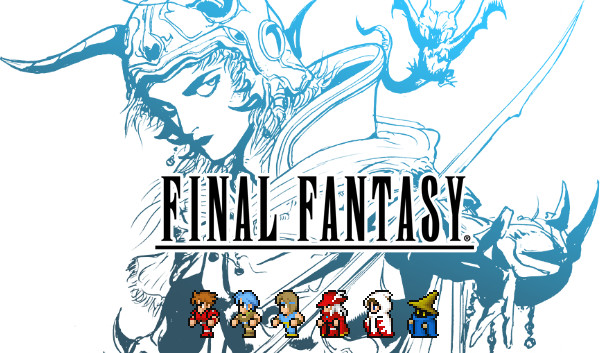Introduction
Final Fantasy, the legendary video game franchise, has reached its sixteenth mainline entry, and it's time to pay homage to the game that started it all. With its release in December 1987, Final Fantasy laid the foundation for a series that would become an iconic part of the RPG genre. In this retrospective, we will delve into the origins of Final Fantasy, its gameplay mechanics, its world, and its impact on the gaming industry. Let's embark on a journey to explore the roots of this timeless classic.
Once Upon A Time…
The beauty of Final Fantasy lies in its complex stories interwoven with powerful character moments and an expansive world stage. Interestingly, at its inception, Final Fantasy's story and characters appeared generic and dated, following the conventions of Western fantasy and Dungeons & Dragons. It started with a simple plot of four heroes saving a princess and evolved into a quest to save the world, featuring magical crystals and demonic forces. However, beneath its seemingly ordinary exterior, Final Fantasy held hidden surprises.
Timey-Wimey Stuff
Final Fantasy took an unexpected turn by introducing elements of time manipulation and reality-bending chaos. As players neared the end of the game, they were confronted with an endless time loop, where reality had been twisted by Chaos. This revelation added depth and complexity to the narrative, making it stand out from its generic beginnings. The concept was brilliant, but its execution left room for improvement.
Dated By 1987’s Standards
Although Final Fantasy's narrative complexity increased as the game progressed, it still fell short compared to other RPGs of its time, like Dragon Quest and Ultima. Its linear and generic storytelling lacked the depth and meaningful choices offered by its contemporaries. Nonetheless, Final Fantasy made up for it with other aspects that made the journey worthwhile.
The World At Large
The world of Final Fantasy was vast and captivating, featuring large islands, oceans, and mountain ranges. Its towns were vibrant, filled with interesting NPCs, and brought life to the adventure. Despite the game's linear progression, the world felt well-paced, offering players opportunities to explore while never leaving them stranded. Side quests were meaningful, rewarding players with new powers and character growth, making the extra content worth pursuing.
Combating Evil, One Encounter At A Time
The combat system in Final Fantasy was relatively simple, with players selecting basic commands like "Attack" or casting spells. However, what set it apart was its emphasis on resource management. Players had to carefully balance their health, magic, items, and money to overcome challenges. The game's focus on strategic resource allocation added depth and pressure to each decision, creating a unique and engaging gameplay experience.
Your Choice, Hero
Another intriguing aspect of Final Fantasy was the freedom to choose the party's classes and playstyles. Each class had unique strengths and weaknesses, impacting the gameplay significantly. Players had to make tough decisions about resource allocation and character builds, and these choices reverberated throughout the game, influencing the overall experience.
Brilliant Bosses
Boss battles in Final Fantasy were where the game's complexity truly shone. Players couldn't simply rely on brute force; instead, they had to plan and strategize to defeat these formidable foes. Each boss battle felt like several battles combined, requiring players to make crucial decisions to emerge victorious. It foreshadowed the strategic depth that would become a hallmark of the series in later entries.
Old Final Fantasy On Modern Hardware
While the original release of Final Fantasy was groundbreaking, modern hardware has made the game more accessible and polished. Re-releases like the Pixel Remasters have addressed historical issues, delivering an improved experience with better graphics and refined gameplay. These versions have struck a balance between challenge and grind, ensuring a smooth and enjoyable playthrough.
Critical Reception At The Time
The success of the original release set Final Fantasy on its path to becoming a gaming phenomenon. Critics and players alike praised the game, catapulting it to fame in both Japan and North America. The positive reception laid the groundwork for a series that has endured for decades and continues to captivate players worldwide.
Conclusion
Final Fantasy's journey began with humble roots, but it quickly rose to become a timeless classic. It may have had its flaws, but its legacy surpasses its imperfections. The game's brilliance lies in its exploration of resource management, strategic combat, and the impact of player choices. Final Fantasy's influence on the RPG genre and the gaming industry as a whole cannot be understated. It's an experience that every gaming enthusiast should embrace at least once in their lifetime.
